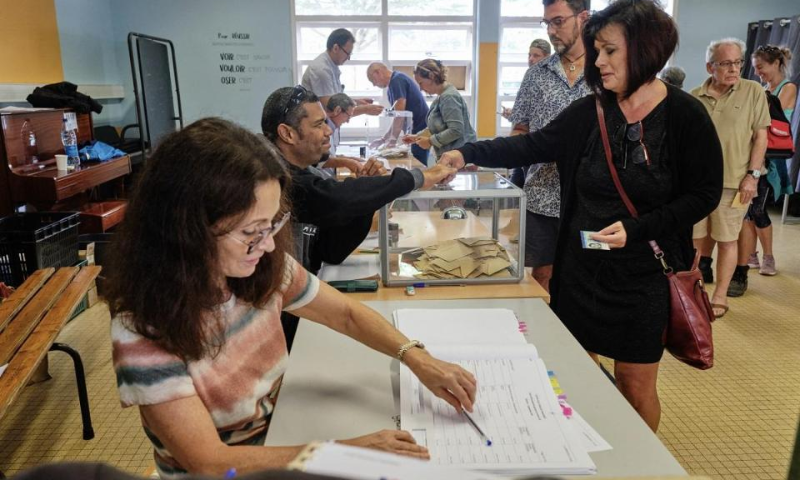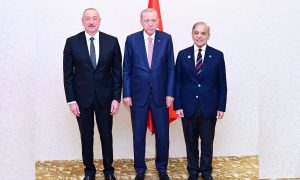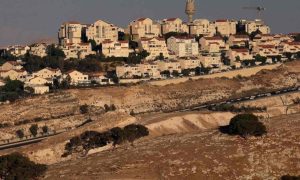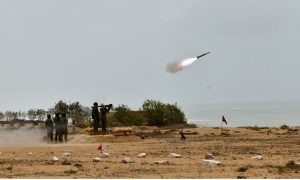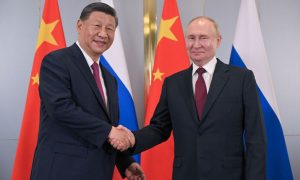PARIS: French citizens voted on Sunday in the crucial first round of high-stakes snap parliamentary elections which could see Marine Le Pen’s far-right National Rally (RN) party take power for the first time in French history.
The elections are taking place at a time of economic uncertainty exacerbated by Russia’s ongoing conflict with Ukraine and soaring energy and food prices. President Emmanuel Macron called for the snap polls following a surge in support for the RN, despite his efforts to prevent its ascent.
Polling stations across mainland France opened at 8:00 am local time and will close 12 hours later, with projections expected soon after that could provide early indications of the results.
Voters in France’s overseas territories that span the globe cast ballots earlier in the weekend. Some 49 million people are eligible to vote.
“These are not easy elections, the results are very uncertain, and the repercussions could be serious for society”, said Julien Martin, a 38-year-old architect in the southwestern city of Bordeaux.
Overseas territories of France, including New Caledonia, have already participated in the voting process, underscoring the widespread interest and significance of these elections. Voter turnout has been a focal point, particularly in New Caledonia where tensions remain high following recent unrest.
By midday local time, turnout in the archipelago, which is located between Australia and Fiji, stood at 32.4 percent, compared to 13.06 percent recorded during the 2022 legislative polls.
The outcome of today’s elections could reshape French politics significantly, potentially marking the first time the far-right holds power since World War II. Analysts predict a fragmented parliament, which could lead to political deadlock and instability.
Former president Nicolas Sarkozy, Greens party leader Marine Tondelier and former prime minister and Macron ally Edouard Philippe were among the first high-profile politicians to vote.
Philippe, the mayor of Le Havre in northern France who has made little effort to hide his ambitions for the presidency, was seen smiling and chatting to locals on Sunday morning.
Recent polls suggest the RN is poised to secure the largest share of seats in the 577-seat National Assembly, but whether they can achieve an outright majority remains uncertain. Should the RN fall short of a majority, it could result in a tense “cohabitation” scenario with Macron’s centrist government.
In a bid to mobilize voters against the far-right surge, various groups including feminist collectives have staged demonstrations across Paris. The campaign season has been marred by incidents of hate speech and intolerance.
President Macron, who has faced criticism for calling the snap elections, defended his decision as crucial for the future of France. He warned against the risks of allowing extremism to gain a foothold in French politics, invoking historical echoes of past conflicts.
The Paris stock exchange suffered its biggest monthly decline in two years in June, dropping by 6.4 percent, according to figures released on Friday.
Support for Macron’s centrist camp has collapsed, while left-wing parties put their bickering aside to form the New Popular Front, in a nod to an alliance founded in 1936 to combat fascism.
Analysts say Le Pen’s years-long efforts to clean up the image of a party co-founded by a former Waffen SS member have been paying off.
The party has promised to bolster purchasing power, curb immigration and boost law and order.









